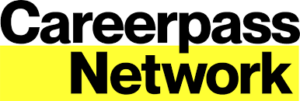Content provided by: Careerpass Network
Joe Twigg, Managing Director of Advertising Solutions at Careerpass Network, offers some tips to help you deliver an end-to-end talent budget.
I gave a talk at last week’s ISE Student Recruitment Conference 2021, covering how to make sure you’re taking advantage of the simple time and cost-effective recruitment methods that we so often see overlooked. In case you missed it, here are all my tips, plus a few extra!
At the Careerpass Network – the home of graduatejobs.com, gradtouch, and more – we’re proud of how in touch we are with our audience, and, wherever we can, we make changes to what we do to ensure the right candidates get the right jobs.
Speaking from the experience of both employer, supplier, and applicants (through frequent surveys of our student and graduate database), we’ve compiled our findings into the following short list of top tips to help you make the most of your money when recruiting.
1. Narrow down your targeting
It’s fair to say there’s a common assumption that bigger budgets take some of the weight off when it comes to recruitment processes. Especially when it’s spent on the initial stages like the advertising and branding elements of a strategy.
What is definitely the case, is that higher investment, especially in the attraction stage, can often just lead to higher volume… which can be the very thing that gets you off to a poor start – because if the wrong candidates go into the top of the funnel, then the chances of the wrong hires coming out of the bottom are pretty high, and you might have to invest a ton more time into filtering through less relevant candidates.
With the lack of in-person student events, such as careers fairs, it can be difficult to connect to specific groups of students. A good option is to take your on-campus activity online where possible. One example of how we tackled this is with our student society sponsorship platform, Kaampus, which allows employers to offer career opportunities to students who have demonstrated they have an interest in a sport/culture/activity/charity that you as an employer may know is in line with what you are looking to add to your business.
In short: don’t just throw cash into candidate attraction. Be targeted, it’ll save you money and time.
How to target
Any job board or advertising platform should have supplementary data on their users, through which you can narrow your targeting. For example, on our job board, GradTouch.com, users have up to 14 fields in their user profiles, including personality traits.
As all advertising is usually priced on reach, you can save money here if you know exactly who you’re looking for. The caveat to this is: make sure you’ve done everything to inform yourself on exactly which kind of candidates have gone through your business and done well previously. Look at success stories, key traits, and characteristics, but also consider what you might be missing.
Diversity has many benefits to your business as well as to society, so become reflexive as a team and assess your needs carefully.
2. Review Your Process
Make sure that your hiring process is clear and transparent, as candidates will make the effort to find and absorb the information – if it’s out there. Ideally, include it in job adverts, but having a page or hub on your website is also good.
Include a realistic process right from the start:
- when they’ll be hearing back from you
- how long the process takes
- what to expect
And always make sure you inform successful candidates straight away, even if they’ve just got through a single stage. Many candidates accept their first offer, and good candidates get offered first, so think about how you keep people invested in the process.
Whenever possible, give candidates an avenue to find out information, a helpline, a chatbot, an info@ email address, even WhatsApp is becoming more widely used (and, of course, is free).
3. Tap Into Your Personality Power
GradTouch ran a nationwide survey of 852 graduates in the UK between July and August 2019 to learn how much of an effect a company’s personality has on graduates’ decision to apply for a role.
We found that graduate candidates are 74% more likely to apply for jobs at companies that have revealed a little of their personality. Over 60% of the graduates surveyed wanted to know about a company’s commitment to sustainability and its support or involvement in a charity.
How you’re represented in your graduate campaign can be genuine and appealing without costing a fortune. Getting involved in a community outreach programme, or just showing that you have a conscience, can be demonstrated on any scale – you don’t have to be donating millions. Being a reflective and self-aware business can go a long way with candidates.
4. Think about when you advertise
It’s important to think about when is best for you to advertise your roles, and how long for.
Graduation usually occurs in two batches: March to June, then September to November.If you can afford to, rolling recruitment means there is less competition from other employers, but advertising during graduate season guarantees a lot more talent to choose from.
In February 2021, GradTouch surveyed 2,878 current UK university students to understand how they’re currently feeling about the future, as well as their own personal future prospects (you can access the full report for free, here.)
Most responses suggest students won’t look for positions until after they start their final year, which may have implications on programmes designed for 2nd year students.
As only 22% stated they would start their job search after graduation, it could be in your interest to start advertising roles early into when students start their final year.
You might also consider graduates from the year before. This year especially will be a great opportunity to target last year’s cohort, as the ISE estimated that around 40% more graduates than usual from last year will still be looking for their first graduate position this year. There really hasn’t been a better time to take advantage of what is a hugely oversubscribed talent pool. There will be less competition for these graduates as it will be past the peak hiring season, but they will still be equally as qualified and eager.
Remember: it’s all about the user journey – and the kind of person you want to go through the user journey.
I hope these tips work for you as they’ve worked for us. Feel free to get in touch with any feedback: hello@careerpass.network



0 Comments